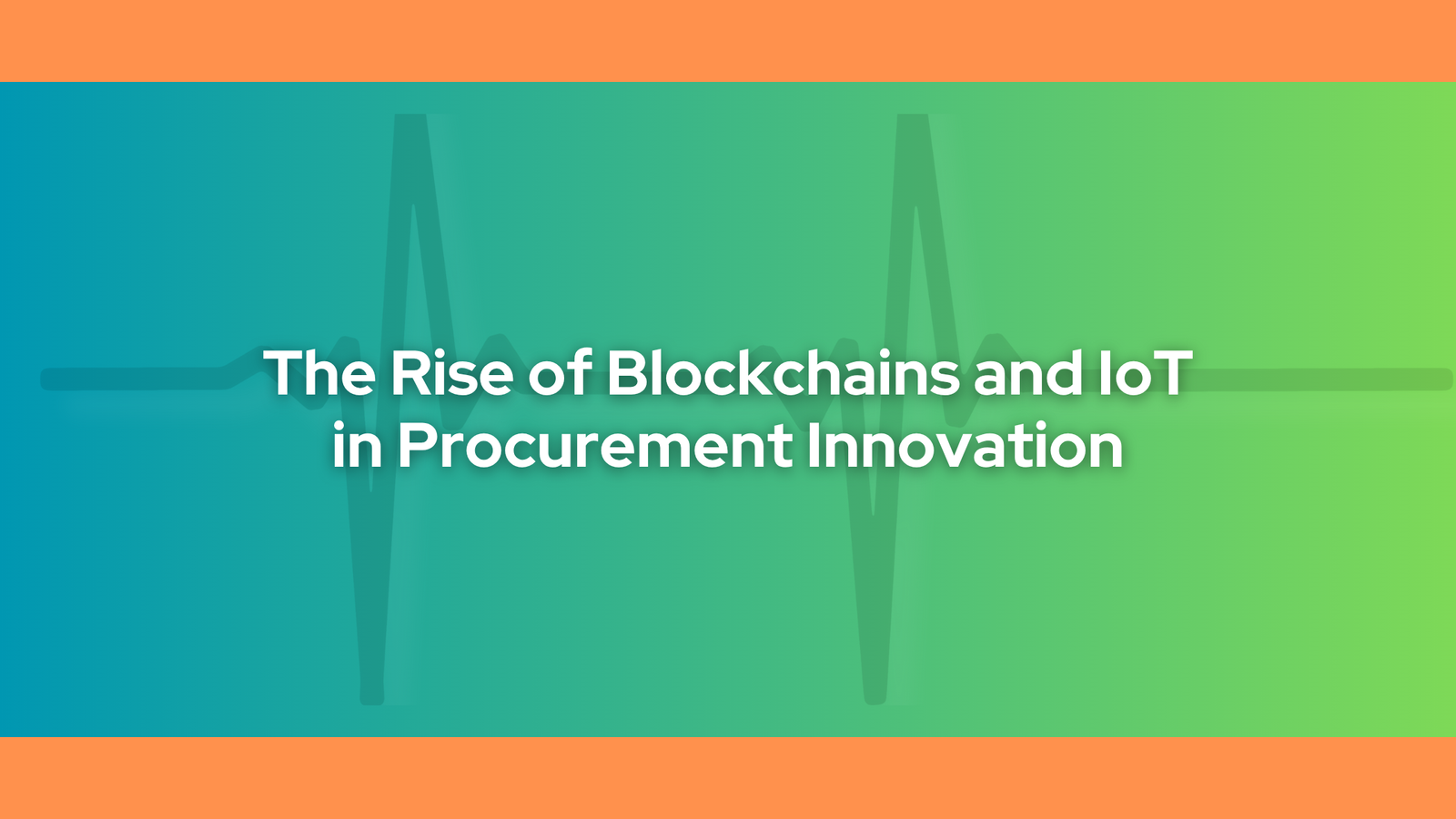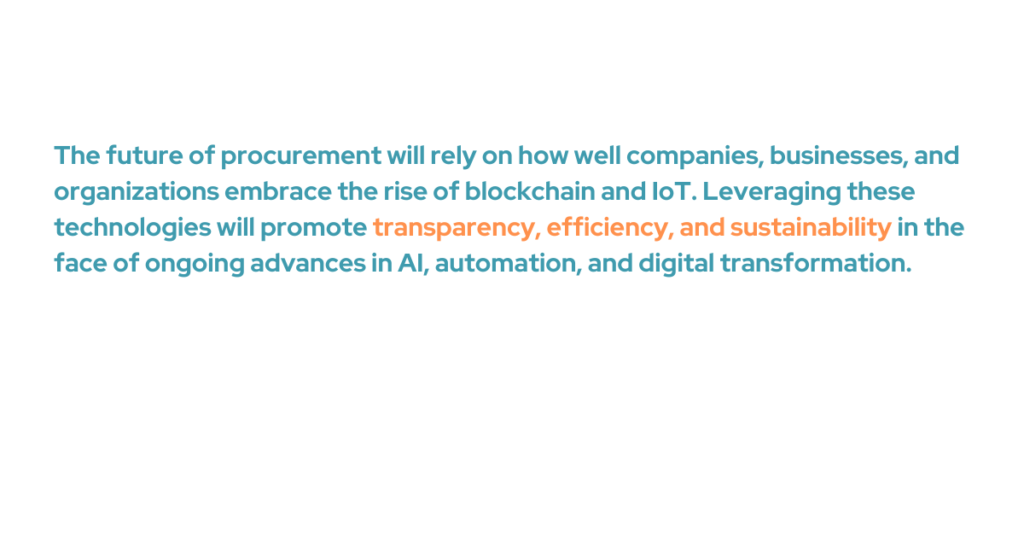
Procurement has been keeping up with today’s rapidly changing digital environment due to the rise of blockchains and IoT, or the Internet of Things. These technologies are helping in the transformation of supply chain management through improving efficiency, security, and transparency. While IoT maximizes waste reduction, demand forecasting, and inventory tracking, blockchain guarantees safe, unchangeable record-keeping. While businesses work to create more sustainable and resilient procurement practices, including blockchain and IoT, it is not just a passing trend or advantage but a huge benefit.

By generating an unchangeable digital ledger that documents each transaction in a procurement cycle, blockchain technology is revolutionizing supply chain transparency. In contrast to conventional systems, blockchain removes the possibility of data manipulation, guaranteeing that each record is genuine and verifiable.
Supply chains typically run on permissioned blockchains that limit access to and record transactions to approved users or consortium members. Blockchain provides real-time transparency and visibility, which lowers fraud and boosts operational effectiveness.
Every transaction is safely kept in a block, creating an unchangeable record of the parties’ interactions. Any attempt to change a record is easily noticed since numerous copies of the data are spread throughout the network. Using blockchains can improve trust and transparency by generating impermeable ledgers. As a result, auditing any data and tracking the origin of each product will be better. This includes building confidence in different parties and stakeholders involved.
This is especially useful in the food and pharmaceutical industries, where tracking the product’s journey from raw material sourcing to product delivery is important. In these industries where inauthentic and unsafe products can lead to a bigger issue, leveraging blockchain can prevent not just contamination but also food and hazardous waste.
Since transparency and traceability are improved, companies and businesses can easily avoid outside parties changing or threatening their data. This can help secure and protect important information such as intellectual properties, sensitive data, and trade secrets.
Furthermore, according to Deloitte, blockchain-powered smart contracts are simplifying procurement agreements by automating transactions and enforcing compliance requirements without the need for human participation. These digital contracts execute terms automatically once predetermined criteria are satisfied, reducing paperwork, minimizing conflicts, and increasing efficiency.
Integrating blockchain into the business can help procurement professionals build a more transparent, secure, and effective supply chain. This can build trust and confidence among stakeholders, suppliers, and buyers.

While blockchain provides security and traceability, IoT transforms inventory management through automation and real-time tracking. IoT-equipped sensors installed in supply chains and warehouses continuously check stock levels, eliminating stockouts and minimizing overstocking. Thanks to this, businesses may meet demand without needless delays or other inventory expenses.
Demand forecasting also heavily relies on IoT. IoT devices use AI-driven analytics to forecast buying trends, assisting companies in modifying their procurement plans as necessary. This predictive ability reduces expenses, avoids waste, and boosts overall operational efficiency.
Furthermore, by cutting down on waste and spoilage, IoT solutions support sustainability. Smart sensors, for instance, can monitor perishable items and notify users when variables like temperature or humidity surpass acceptable ranges, thereby averting spoilage and monetary loss. Oracle even suggested that IoT and blockchain can potentially be used by businesses to track carbon footprints and confirm ethical sourcing.
The future of procurement will rely on how well companies, businesses, and organizations embrace the rise of blockchains and IoT. Leveraging these technologies will promote transparency, efficiency, and sustainability in the face of ongoing advances in AI, automation, and digital transformation.